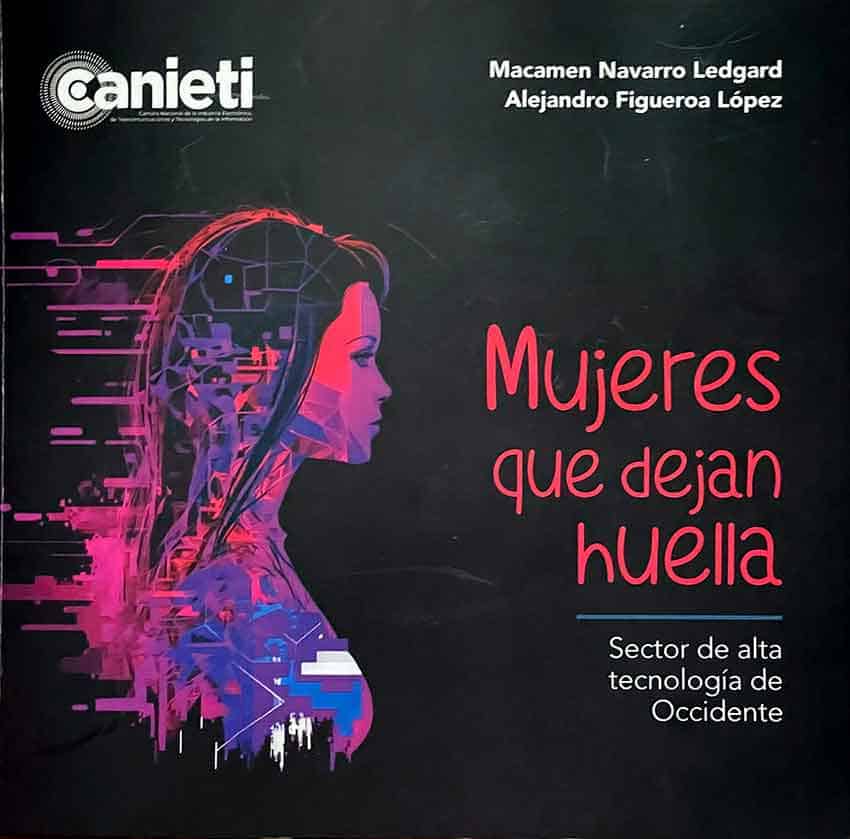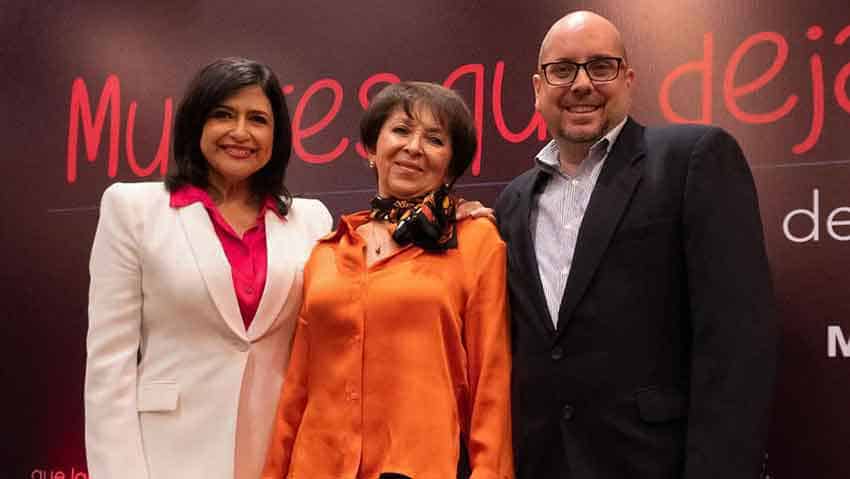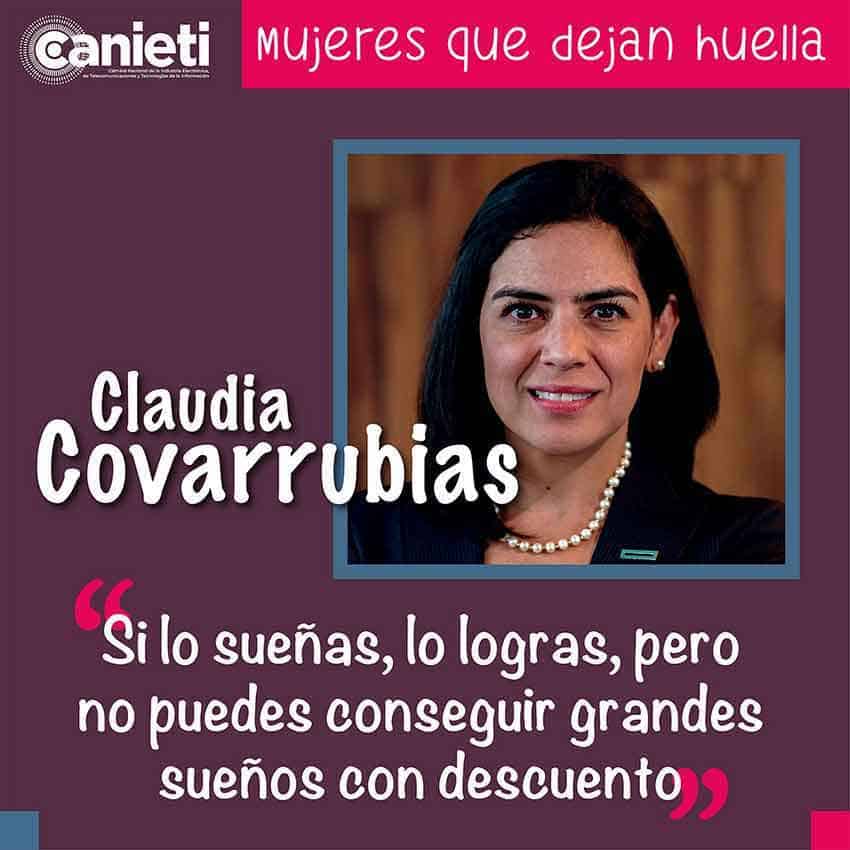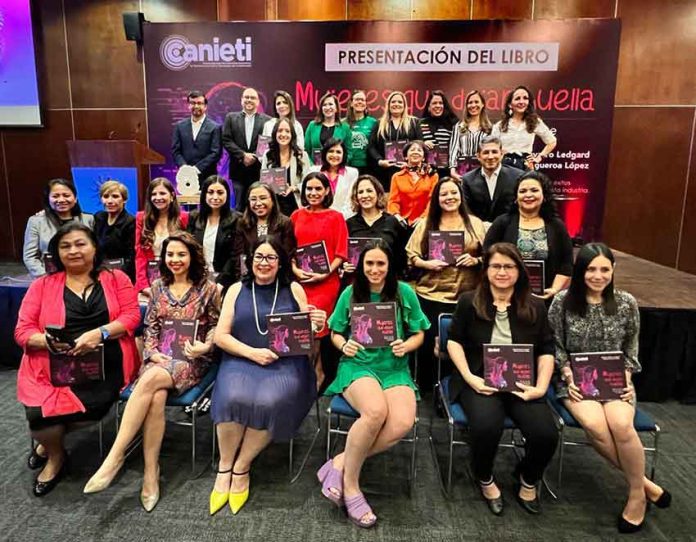“Mujeres que dejan huella” (Women Who Leave a Mark) by Macamen Navarro and Alejandro Figueroa is a book about women working in the high-tech industries of Guadalajara. But it’s not just for techies or business people.
“Don’t get me wrong,” says co-author Macamen Navarro, “We think just about anybody would find this book interesting, but we particularly hope that it will inspire new generations of girls in Mexico. This book is about women who are making a difference.”

“We want to tell their stories to motivate even more girls to take up a career in this field because in Mexico only 30 percent of high-tech students are women. And when it comes to those currently holding high-tech jobs, the number is far smaller. So, we’d like to see many more girls get interested in this sector.”
“At the same time, we want both men and women in the field to learn something about their colleagues. For example, I belong to CANIETI, the National Chamber of Electronics, Telecommunications, and Information Technology, and I noticed that it’s always men who are getting promoted there. When I ask, ‘Why is that?’ they reply: ‘Because there aren’t any women for us to promote. Just give us one name!’”
“Well,” Navarro told me with a broad smile, “here I’m giving them 26 names of women who are successful and well placed. These are vice presidents and directors of global companies, making important decisions every day, right here in Western Mexico.”
During the interviews, Navarro asked the women what games they played as little girls, if they suffered from bullying, or at what moment they became aware of the skills they possessed.

“All of this,” she told me, “can help mothers today to identify what abilities their children have right from when they are little, and to direct them toward careers where they could be successful and not force them into fields where they don’t have skills.”
Navarro spent just over an hour asking questions like these. “And with [their answers], we put together each woman’s story,” she says.
If you ask such questions to children, you may not get much of an answer, but, Navarro discovered, if you ask those same questions later in life, people may end up using their self-awareness as a tool to connect things.
“This,” said Navarro, “may bring up all kinds of unexpected emotions, because it awakens deep, hidden feelings. For example, one of these women suffered from cancer. When I asked her about it, she began to cry, but she said, ‘This is strange, I’ve talked about my cancer many times, but I’ve never felt what I’m feeling right now.’ And I told her, ‘It’s because I brought you back to when you were a little girl. You are remembering a happy child playing, studying, having a boyfriend, getting a job, getting married, having children – happy, happy, happy. And then suddenly there’s a strong shock, and it’s that jump from one thing to the other that catches you by surprise.”

Navarro then read me a story from a chapter dedicated to a woman named Claudia Covarrubias.
As a child, Claudia wanted to attend school, but to do so, she had to leave her parents and go study in the pueblo of El Grullo, Jalisco, located 140 kilometers southwest of Guadalajara.
When the day came for Claudia to leave her family, she cried all morning and all the way to El Grullo.
Every Monday she would have to go to an internado, a boarding school, in El Grullo and stay there until Friday.
On one of those Sundays, before Claudia set off to El Grullo, her father took her aside to talk to her. He and his wife wanted to give their daughter a chance that they had never had, a chance to go to school. But they didn’t want to force her.
Her father proposed that Claudia ask herself exactly what she wanted to do with her life. If she wanted to continue going to school, she could get up early on Monday and knock on her parents’ bedroom door. Or, she could keep sleeping, and whenever she got up, her mother would start teaching her how to do all the household chores, as well as all the jobs related to running a rancho.
That night, Claudia couldn’t sleep. She imagined herself in the future, wearing huaraches, and married at a young age to a Norteño who worked in the USA and only came home to get her pregnant. Then, she remembered the times her father talked to her about finances and Wall Street. Suddenly, in her mind’s eye, Claudia saw herself in New York, wearing a pearl necklace and chic high heels.

That very night, at 11 years old, Claudia made the most important decision of her life. She got up at 5 a.m., got ready to go to school, knocked on her parents’ door, and swore to them that never again would she cry about having to go to El Grullo.
“Today,” said Navarro, “this woman is the Chief Financial Officer for Latin America and Global Channel Finance Lead of Hewlett Packard Enterprise.”
Navarro told me that every time she asks little girls who their role model is, they always mention people like Gandhi and Marie Curie.
Navarro likes to reply, “They were truly great people, but they are dead. Instead, these 26 women are alive. You can get to know them; you can ask them questions; you can follow them on social media. They’re here among us and they are working on the technology that we use today and that we will use in the future.”
“I’ve judged competitions where girls present software applications they’ve developed on their own,” continued Navarro. “And after congratulating them for their ingenuity, I’ll ask a girl: ‘What carrera (career) are you thinking about? What are you going to study?’ She’ll think for a second and then say: ‘I’m going to study accounting.’ And I say, ‘But why?’ And she will reply: ‘That’s what my father wants me to study.’”
Navarro always asks, “But why don’t you study technology?”
And the girls say, “My father says that’s not for women.”
“That,” concludes Navarro, “is why I wrote this book: so when a girl hears ‘That’s not for women,’ she can hand the book to her father and say: ‘Mira, Papá, (Look, Dad) here are 26 women working in technology… and I bet they’re making more money than their accountants.’”
Anyone interested in acquiring “Mujeres que dejan huella” should contact Patricia López at CANIETI [plopez@canietigdl.com.mx], or by telephone, 333 030 7206.
The writer has lived near Guadalajara, Jalisco, since 1985. His most recent book is Outdoors in Western Mexico, Volume Three. More of his writing can be found on his blog.
